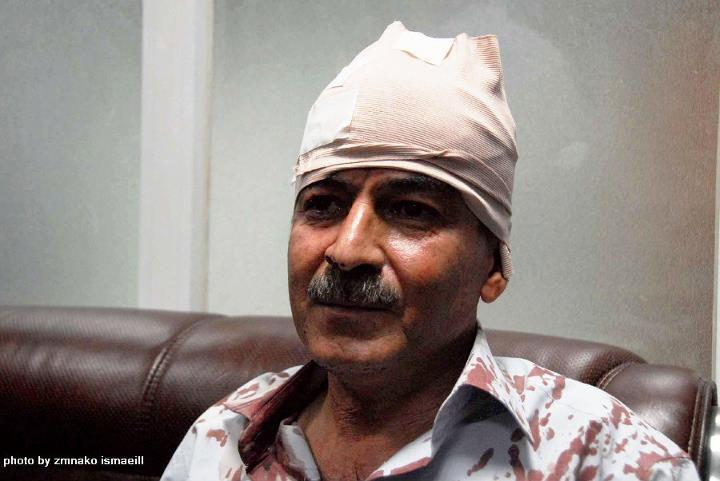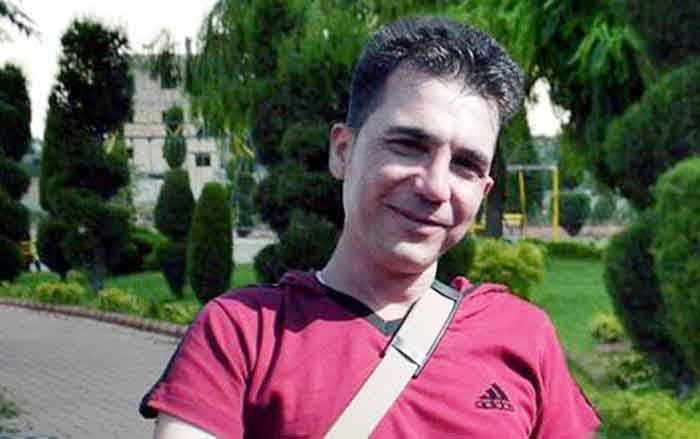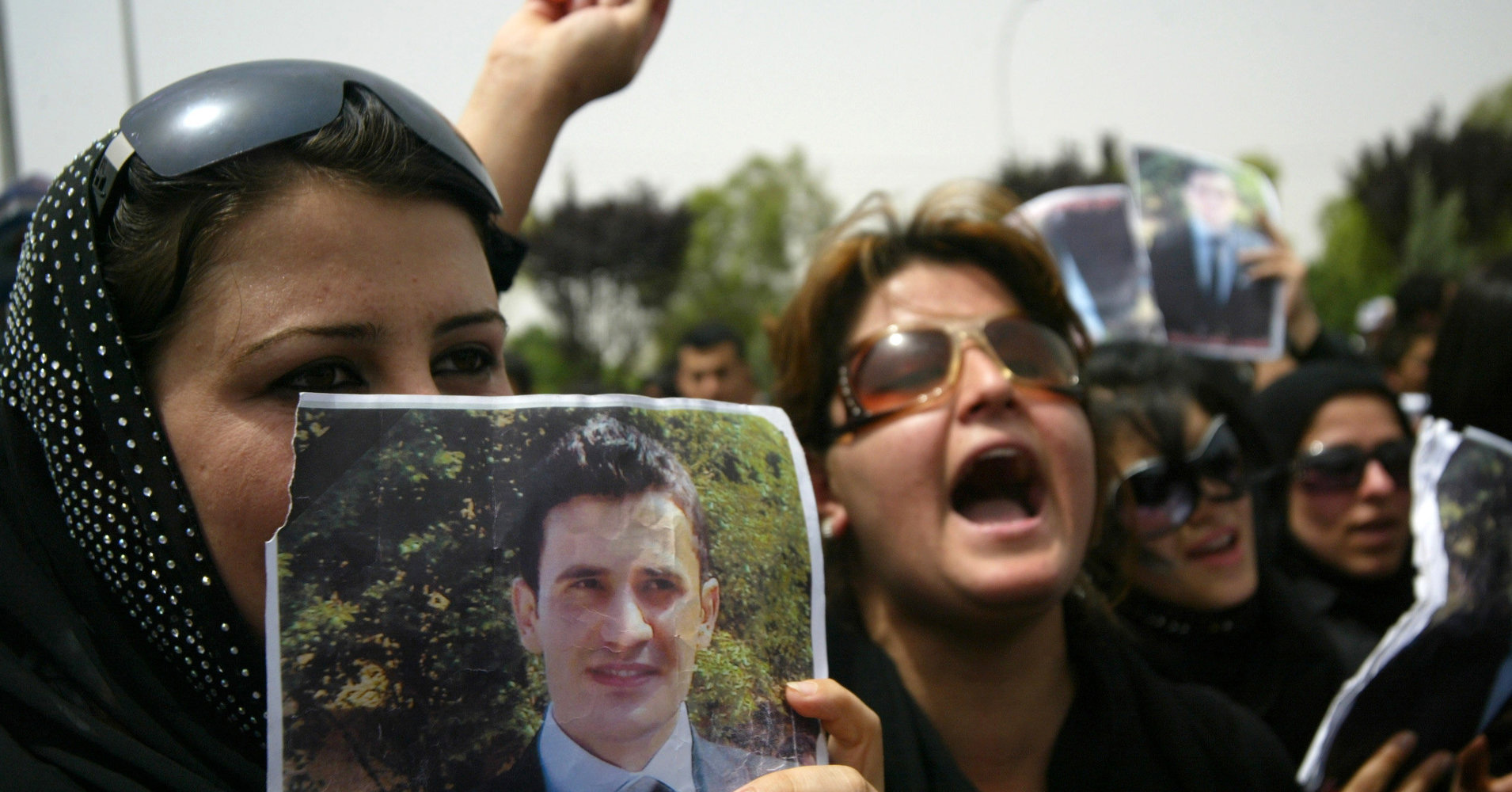After nine years, one of the key suspects of the assault against Asoss Hardi, a Sulaymaniyah-based journalist, was freed.
This news was the headline of most of the media in the beginning of January 2020, an unordinary one that reflects the freedom of press in Iraqi Kurdistan Region IKR where no one goes punished for assault and even assassination of journalists.
On August 29th 2011, couple of people attacked Hardi, author, editor-in-chief of Awene, a private, independent weekly & head of Awene Establishment.
The main suspects included a senior officer of the Peshmerga (Kurdish fighter) and tow of his guards. Following nine years of court trial and many sessions, the suspects were not ready to go to court. Once they did, they were out on bail and later found not guilty.
This is one of hundred cases of violations against journalists in particular free and independent journalists and all went unpunished as courts were unable to sort out the cases and penalize the perpetrators.

Sulaymaniyah, August 29th 2011- Assos Hardi was beaten by identified gunmen close to his office in a main street of the northern province. Zimnako Ismaeel
The first Kurdish paper was published in Cairo by Miqdad Madhat Badirkhan on April 22nd 1898, a private independent marking the dawn of free and private Kurdish journalism.
Despite the controversy over the beginning of free private media in IKR following 1991 uprising when Saddam Hussein was ousted, Dr. Herish Rasol, a professor of media, narrates in a research the first paper was “Imro” (Today) in Mid-August 1994 in Erbil followed by several other attempts.
Hardi, once editor-in-chief of Sulaymaniyah-based Hawlati weekly as well, argues that publication of Hawlati marks the concrete start for free media in the IKR and “all other attempts were funded by senior political figures.”
The first issue of Hawlati was out on 11.05.2000, and the concessionaire was Tariq Fatih, owner of Ranj Print House. The paper introduces itself as the first independent paper since the establishment of Ba’th party in 1968.
The paper was circulated up to February 2015 yet it was halted for financial crisis and later resumed in April 2018as a weekly. Following the Corona-virus pandemic, the paper was stopped in March 2020.
On January 3rd 2006, the first issue of Awene was published by Awene Company for printing and publications. In 12 years, Awene have circulated 927 editions. Awene company is a limited company for media owned by a group of investors based on the idea “independent media requires financial and economic independence in order to act freely and independently.
The project also was promoting for investment in the private sector of free and independent media.
Following publications included Living Magazine, Shar media outlet and other magazines and papers parallel with radio stations of Nawa in Sulaymaniyah and Dang (The Voice) in Kalar, mostly owned by individual owners or private companies and all were introduced as private and independent media meeting regularly.
Dozens of victims
Despite all the forms of violence against media in the IKR mainly directed toward free private media, there is no in detail record and data about those abuses. The murder of journalists Soran Mama Hama, Sardahst Osman, and Kawa Garmiyani is enlisted as violence against free media.
The murder of Soran Mama Hama in July 2008 is a vivid example of violation and crime against journalists and free pens yet 12 years following his murder, no one has been punished and the perpetrators still unidentified.
Mama Hama, 21, was a freelance journalist digging the cases of corruption, waste and embezzlement of public fund. He used to post his storied with Hawlati and Living. Relatives and colleagues said he was assassinated in front of his house in Kirkuk for his journalistic pieces.
The case is still pending at court and the investigation failed to find out the reason behind his murder and no suspects brought to justice. Journalists commemorate his assassination with his family and still ask to end impunity and accountability.
He has received death threats two months ahead of assassination for editorials published in Kurdish media particularly about the first lady in IKR and another about ties between Kurdish local officials with prostitution bands in Kirkuk.
Latif Fatih Faraj, a Kirkuk-based journalist and author, as a close friend of Mama Hama, said, "There are information who are the killers and why Soran was killed yet there are no proofs. His case is sunk in dust and no proceeds. The case is in Kirkuk court and Asayish follow up found out some info as well."
There are hints who are the killers and why Soran was killed yet there are no proofs
As many other cases, Soran's has become one of the outcrying cases of violence and assassination of journalist and free voices in the IKR.
"About 2,000 cases of violence against journalists has been registered in the last ten years and all went non punishable."
Over 2,000 violations
The figures by Iraqi Kurdistan syndicate of journalists from 2008 throughout 2018, show that almost 2,000 violations were practices against journalists mainly against free and private media outlets but no one has been punished for these acts.
Anwar Hussein, deputy president of the syndicate said journalism is not considered a profession. "The KRG and the parliament do not show respect for journalists and their mission despite the laws passed in favor of journalism."
The current approach is that media is an elusive enemy of the government and the security services though it is permitted per law and any violation against journalist is equal to a crime against a state civil-servant.
Hussein said "the syndicate has 9,000 members but it cannot gather only 500 of them once," in reference the journalists are not united to push the government and relevant authorities to activate laws and protect them.
The syndicate has 9,000 members but it cannot gather only 500 of them once
The only case that court sentenced the perpetrator is Kawa Garmiyani's.

Kawa Garmiyani, editor-in-chief of Rayal Magazine, was killed in December 2013 in front of his home in the lap of his mother in Kalar district of Sulaymaniyah.
On December 5th 2013, Kawa Garmiyani, editor-in-chief of Rayal Magazine and a correspondent of Awene, was killed in December 2013 in front of his home in the lap of his mother in Kalar district of Sulaymaniyah.
The court has charges someone guilty sentenced to death yet cassation court has eased it to life sentence.
In Kawa's case, there were testimonies that some senior officials were involved as motives for the killed yet the key suspect has denied any links with any local officials.
There were attempts to include the convicted in a general amnesty by the Iraqi Kurdistan region parliament yet his colleagues has mounted efforts and informed relevant authorities that the murderer can't be released.
Azad Osman, a journalist close to Garmiyani 7 director of a (Voice) Radio station, said the station was looted in 2011 and no one was held responsible.
"We know it was the security forces and Asayish who raided the station."
The murder of Sardasht Osman, Wadat Hussein and Shukri Amedi, are clear cases no one held accountable for it yet while the court and security forces cooperate to lead the cases into other direction.
Sardasht Osman, a journalist and student of last stage of English department, college of arts in the University of Salahaddin in Ebril, was abducted on May 4th 2010 in front of the university campus and two days later found dead and handcuffed near Mosul.
The security forces said he had ties with a terrorist group in Mosul whom killed him for disobeying them. This story was rejected by his family and friends who were sure he was assassinated for his writings.
Bashdar Osman, brother of Sardasht said that in February 13th 2013 court hearing; the key suspect denied his interrogation. He denied that he has ever met Osman, never knew him and was not involved in the murder.
A news story by Living found out that the key suspect was in jail when Osman was killed.
Documentation is needed
Metro center for defending journalists has registered 2,241 violations from 2011 to 2019 including murder, physical abuse, intimidation, detention, confiscation of equipment and banning journalists from coverage, no access to information and others.
The center publishes its reports annually in aiming at minimizing the violations against journalists. The center has circulated a template for journalists facing abuse and hotline for registering the cases.
Rahman Gharib, coordinator of Metro, believes the public prosecution and the jusdiciary system in general are part of the problem. "The judges are appointed by the political parties which means they can influence the judiciary system. Journalists also refrain from reporting their cases."
Metro center offers free legal consultation and lawyers for abused journalists in order to file lawsuits for any form of violence or abuse but since they lost trust and confidence in courts, they don't refer their cases to courts.
"Journalists have to report the cases of violence in order to be documented."
"Journalists have to report the cases of violence in order to be documented."
"If every single case is filed, then there will be piles of cases when investigators and researches dig," Gharib concluded.
Metro Center reports show that journalists are filing fewer cases to relevant authorities year after year. Some cases are kept pending and undetermined while in other cases the media outlets are not ready to defend their staff.
Following Daesh takeover of parts of Iraq in 2014 and the economic crisis, printed papers in general and particularly free and private media set back and most of it were shut for ever especially the leading ones such as "Hawlati, Awene, Livin, Shar, Sipi, …etc). It is replaced by online media and social media platforms.
The syndicate of journalists states that out of 900 papers and magazine got license up to 2014, almost 850 of it were closed for political and economic reasons.
"Readers are not interested any more in the media which is in big crisis and the future is clumsy," Hussein thinks. Some TV channels indirectly funded are playing a negative role disturbing the social ties, underestimating the serious issues and the role of real media," he added."
Easy to crack
Hardi who lead Hawlati and Awene, two icons of IKR media, believes the crackdown on private and free media is widely practiced because it is vulnerable since no state authority supports it while "shadow media", a reference to media indirectly funded by political parties, "is safeguarded against any physical abuse or legal interrogation."
Besides, "professional media is attacked by all parties who are even at odds when they are covered or involved in a story. Private media is easy to crack so no one spares a chance."
Private media is easy to crack so no one spares a chance
Since 1992, the IKR as a legal sovereign entity has passed eight laws to defend free media and journalists yet still they are charged under law of terror and misue of communication devices.
The executive authorities and the judiciary system could not protect journalists from violations despite all allegations that the IKR is a free and democratic region and the "other Iraq."





